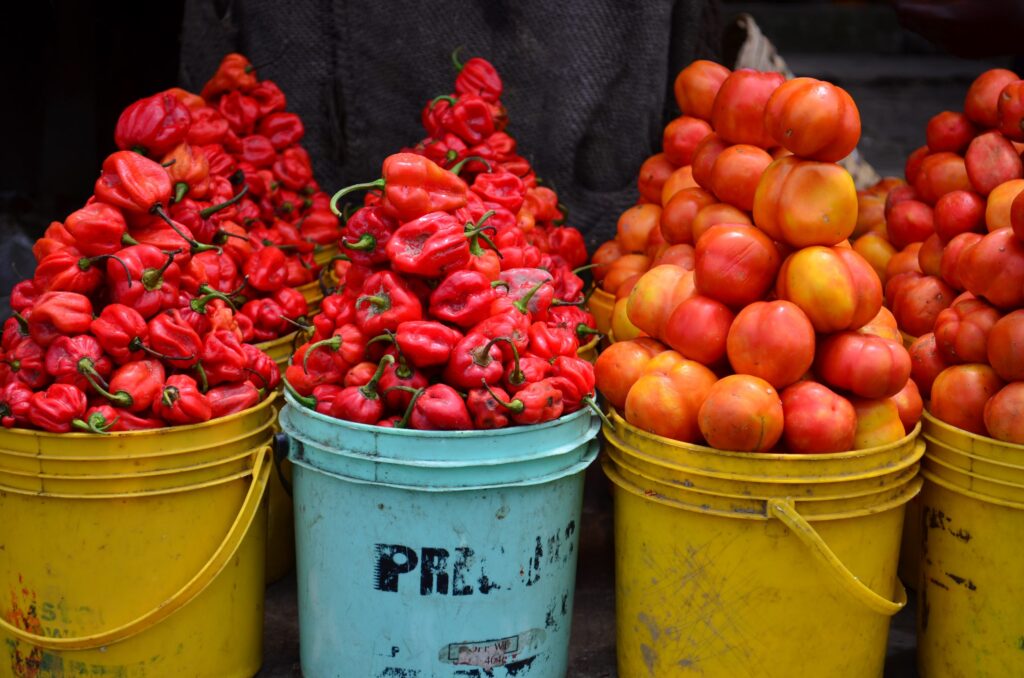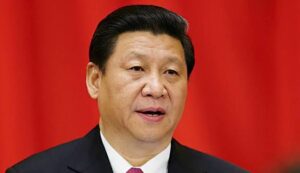Why price of tomatoes will remain high — Mehta

The co-founder and CEO of Tomato Jos, Mira Mehta, has said that the high cost of tomatoes currently causing distress among Nigerians is a seasonal thing, and may not come down soon.
In a series of “X” posts, Mira shared her perspective, blaming the cost on the current season, she said “Tomatoes are SEASONAL. All over the world, open-field tomatoes are seasonal. They need cool nights, hot days, and a dry climate. In Nigeria during the rainy season, it is hard to grow open-field tomatoes. EVERY YEAR in June, the prices go up. Every year guys” she said.
Meanwhile, many Nigerians have resulted in alternatives to getting their meals, and seeking cheaper ways to cook their soup, and possibly doing so without getting tomatoes.
Currently, five pieces of tomatoes goes for as high as #1000 while red pepper also goes for a count. The Muslim festive period is a witness to that testament as many consumers lament the hike in price and their inability to cook the right food due to this increase.
However, the processed tomato paste producer further emphasises the importance of seasonality, and also cost of transportation as the major factors. “Seasonality is such a big deal that we only run fresh fruit through our factory for ~70 days a year. During that time we process some of the fruit directly into sachets, and the rest into paste that we store for future use” she said.
She wrote on X, “All over the world, open-field tomatoes are seasonal. They need cool nights, hot days, and a dry climate.
“In Nigeria during the rainy season, it is hard to grow open-field tomatoes.
“EVERY YEAR in June, the prices go up. Every year guys.
“And every year like clockwork you get some tomato association crying to the media about tuta absoluta, saying that’s the reason yields are down. NO.
Tuta can be controlled easily with chemicals that are available in Nigeria. We (touch wood) haven’t had tuta issues since 2016.
“Those guys are just trying to make noise in hopes that they’ll get a government handout. Maybe it works. I don’t know. I don’t really care btw.
“Seasonality is such a big deal that we only run fresh fruit through our factory for ~70 days a year. During that time we process some of the fruit directly into sachets, and the rest into paste that we store for future use.
“Seasonality means TOMATOES DO NOT LIKE RAIN. You have to spend more time and more to get tomatoes to grow in the rain.
“See below: the numbers are different now due to inflation/devaluation but the logic still holds. In the rainy season you spend more money but get less fruit.
“Our farmers spend 1.5 million naira per hectare to get yields of 40-50 MT/Ha.
Cost: 33 N/KG
“In the rainy season you’d need to spend more (maybe 1.8-2M per hectare if you want to stake fruits and use more anti fungals) and you’d be very lucky to get 10 MT/Ha.
“So if you believe me now when I say that tomato prices ALWAYS increase in the rainy season and Nigerians ALWAYS freak out about this every June, let’s move on to talk about why/whether this season is actually worse than previous seasons.
“This part is going to be speculative.
·
“Folks are talking about security a lot, and that could be a factor… I don’t want to belittle the security issues across the whole of Nigeria (please let’s not make this a north-south thing, it’s a mess everywhere).
“BUT. I think it has more to do with inflation.
“Fertilizer has become stupid expensive lately, and I believe this probably led fewer farmers to plant dry season crops and/or farmers to farm on smaller plot sizes.
“If Nigeria were a serious country, they’d have the state ADPs go out and measure the acreage of each major crop planted. USDA does this for corn, soy, wheat, and other crops and it’s publicly available info.
But we all know Nigeria is allergic to collecting & sharing real data.
“I agree 100% with this. Input costs are up, loans don’t make sense, and food production is probably down across most crops. Though we can’t know for sure because we don’t measure stuff like that here.
“Every input that goes into production has done an average of x4 or x8 in prices , that has also affected the production capacity of farmers and the financial pressure of taking loans doesn’t make it worthwhile.
“The final (also speculative) reason I think tomato prices are especially high this year is climate-related. From our own experience, TJ farmers had our worst yields in four years this year, despite planting early which usually guarantees a higher yield.
“We saw the hottest temps we have ever seen in Kaduna in December. The harmattan didn’t come till January and it wasn’t as cold as it usually is, and at least for us, we didn’t compensate for this with increased irritation (😖) so our farmers’ plants experienced high stress.
“So if fewer farmers planted tomatoes on smaller plots of land, facing poor weather & massive inflation during the season, this would naturally put more pressure on the cost of a product that already experiences price volatility via seasonality.
“We should see tomato prices coming down a little towards August (see below) but the impact of inflation is real and long-lasting.
“It’ll come down a little bit towards the end of the summer. If you live in Lagos, by August you’ll start to see fresh tomatoes coming out of Kwara State. There’s a group of farmers there who actually do the hard work of rainy season open-farm tomato cultivation.”
Contrary to her opinion, chairman of market traders in mile 2 Lagos, Mr. Shehu Jubrin has attributed the shortages and high cost to insecurity of farmers. In his words he said; “The bone of contention, the real fact is insecurity. Let me tell you, that’s the truth. And there’s absolutely nothing the country can do about it. This price hike will continue. They are still buying tomatoes at the rate of N1, 000 for three pieces,” he said on Monday’s edition of Channels Television’s ‘The Morning Brief.’
“Ninety-nine per cent of the people in IDP camps are farmers. They don’t know anything apart from farming – both male and female. The people who are on the farm and are farming with one eye closed and they are just about 1,500 out of about 5,000 farmers we have across the whole country.”
He said some of the farmers negotiate with and pay bandits before they can go to their farms to harvest the products.
“In those places where you are getting all these items, there are negotiations between them and the bandits who ask them, ‘How much are you going to pay me to harvest and bring to the market?” the market leader said.
“So for as long as those people are in IDP camps, the country will continue to be in trouble in terms of food items.” he concluded.






